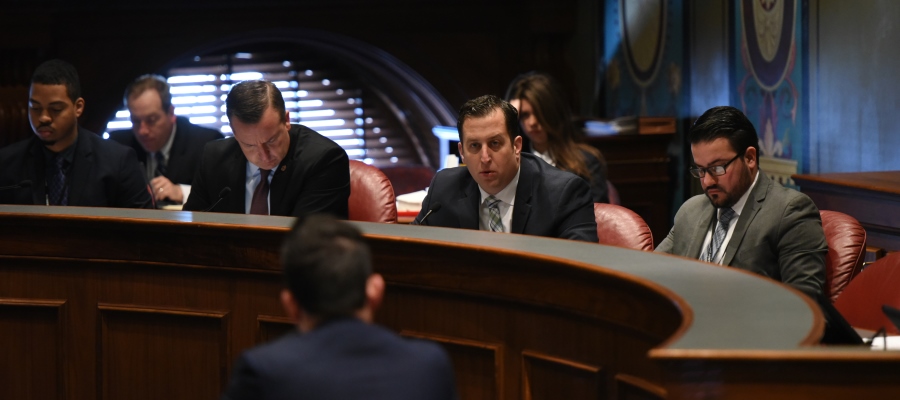
TINLEY PARK- State Senator Michael E. Hastings (D-Tinley Park) is disappointed in the Illinois Board of Elections’ decision to continue participating in the intrusive and controversial Interstate Voter Registration Crosscheck Program.
The Board of Elections voted 4-4 this morning against a motion to withdraw from Crosscheck, meaning that Illinois will continue participating in the program despite substantial security and disenfranchisement risks.
“Voting is a fundamental component of our nation’s democratic values,” Hastings said. “Illinois residents deserve to have the peace of mind that the Illinois State Board of Elections is taking every necessary precaution to protect their sensitive personal information.”
The state of Illinois is also a member of the Electronic Registration Information Center (ERIC), which is considered to be more reliable in determining the accuracy of voter registration.
“I’m disappointed the Illinois State Board of Elections refuses to learn from the mistakes of the past,” Hastings said.
Last week, Hastings raised some security concerns and urged the State Board of Elections to abandon Crosscheck, during a joint House and Senate hearing.
Since 2010, approximately 8.6 million Illinois voter registration records have been submitted to the Arkansas and Kansas Secretaries of State, including names, birth dates and partial social security numbers.
During the hearing, members heard from advocates and experts that Crosscheck does not use secure networks and that passwords used to access information on the database have been sent through unsecure emails.
“We live in an online world,” Hastings said. “We have already seen the effects of using unsecure voter systems with the cybersecurity breaches during the 2016 presidential election. However, it seems like the lessons of the last election are lost on some members of the Illinois State Board of Elections board.”
Critics also argue the unsecure Crosscheck system is designed to suppress minority voters. Communities of color are more likely to have the same last names, which the program flags as a potential double voter. Additionally, the program does not check middle names or suffixes such as Junior or Senior.
The result is that voters with similar names can often be mistaken by the program as double-registered voters, which could have them potentially thrown off the voter rolls.
“I refuse to sit by and watch policies that promote voter suppression persist,” Hastings said. “Our nation’s heroes have gone to war and too many have made the ultimate sacrifice to protect our democratic values. Taking away qualified voters’ ability to participate in the democratic process is an extreme injustice and disservice to the men and women who have fought to protect our values.”
Hastings has continued to advocate and call for stronger cybersecurity protocols at the state and local levels to prevent further attacks on Illinois’ voter registration databases. He will explore additional action to secure the sensitive voter information.


